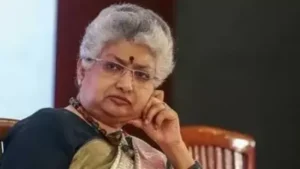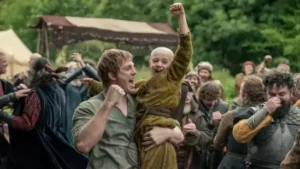
Last Month, The Supreme Court, In K umadevi v. Government of Tamil NaduBroadened the Interpretation of Tamil Nadu Fundamental Rule (fr) 101 (a), which had previous deenized paid material leave to female government servants with two or more surviving children. The court hand that a womanwal not be denied Maternity Leave for her Third Biological Child, Harmonising The State Rule with the Maternity Benefit Act, 1961 (MBA) Ceiling on Maaternity Benefits. In Reaching this conclusion, the court anchored its reasoning in article 21 of the Constitution, Deepening the jurisprudence that treats reproductive choice as a fares as a facet of personal liberty.

The judgment leans heavily on the line of cases against Suchita srivastava v. Chandigarh AdmnIn which the apex court first declared reproductive choice a facet of liberty under article 21. in X v. Principal secretaryThe corolry of that Principle was iterated by the court in Concrete terms: “Deprivation of access to reproductive healthcare or emotional and physical well-bieing injures the dignity of women.”
Crucially, in UmadeviThe court adopted a purposive interpretative approach. It treated the MBA as Laying Down the Browader Principles of Maternity Benefits, Reasoning that Any Narrower State Rule Must Be Read in Light of that Central Statute and The Constitution. Several contextual factors reinforced the outcome. First, much like the facts in Deepika Singh v. Central Administrative TribunalThe pregnancy in question in Umadevi was the applent’s first biological pregnancy during her government service. Second, the applent did not have custody of her two child from a previous marriage, making the present pregnancy particularly meaningful meaningful. These facts, the court implied, underscored the unfairness of penalizing her for the mere fact that she was now carrying a third child. Women cannot be punished for their reproductive choices; The purpose of Maternity Benefits is to Honor them Both as mothers and as works.
The Judgment also grappled with the two-match norms often espoused in population-control policy. Rather than dismiss the state’s demographic concerns outright, the court insisted that thats aims “must be harmonised in a purposive and rational manner” with constitutive guarantees. Population policy and Maaternity Protection, it concluded, are not mutually exclusive objectives. Thus, it can be inferred that burden of controlling population must not fall on Child-bearing women by striping them of fundamental employments protects.
Tamil Nadu’s two-screw ceiling is hardly unique. Service Rules Around the Country Have Similar Restrictions. Uttarakhand offers a vivid illustration of the constitutional confusion that can follow. In 2018, a single-judge bench of the Uttarakhand High Court (HC), in Urmila masih v. State of uttarakhandStruck down the Second Proviso to Fr53, which Barred Maternity Leave on a Third Pregnancy. Relying on Section 27 of the MBA and Article 42’s Mandate for “Just and Humane Conditions of Work and Maternity Relief,” The Single-Judge Bench Declared the Proviso Uncontritationalal.
In 2019, a division bench of that HC revised the decision in Urmila MasihThe bench help that Maternity Leave is a statutory service condition rather than a fundamental right and that the mba does not automatically overerride state Rule Rule Rule Rules Government Servants. It chastied the single-judge bench for grounding relieve in Directive Principles, which it deemed non-judiciable, and reinstated the two-screw bar. The Umadevi Decision Tilts the Scales in Favor of the Earlier, More General View. By reiterating reproductive choices as a fundamental right rooted in article 21, and using this to anchor maternity benefits even for a third child, the apex court provides a way to challenge state Benefits only to mothers with less than two biological child. However, Umadevi Did not expressly Strike Down Tamil Nadu’s Fr 101 (a) or Mandate Other States to Amend Similar Provisions, Leaveing Room for Furter Litigation (and Uncertainty) While Umadevi Marks a Decisive Advance, its impact will remain Uneven Unless Policymakers Act Swiftly. Without Legislative or Executive Follow-Through, Women in States with two -Child Rules Must Still Approach Courts, Relying on the Apex Court’s Articulation of Reproductive Rogue Relief. That Piecemeal Approach is Expected, Time-Consuming, and Inaccessible to many.
The immediative imperative is for state governments to audit and reconsider all service rules that Cap Maternity Benefits at Two Children. Concurrently, all courts must apply Umadevi Consistently, recognizing that reproductive autonomy and access to maternal health care are now woven into the constitutional fabric.
India Frequently Extols Motherhood in Rhetoric While Rationing Support for it in policy. By holding that a third child is no less deserving of state protection than the first two, Umadevi Puts Constitutional Heft Behind Its Sentimen. Whether the Executive will heed this course correction is the pressing question.
Jwalika Balaji is Research Fellow (Research Director’s Office), Vidhi Center for Legal Policy. The views expressed are personal.






